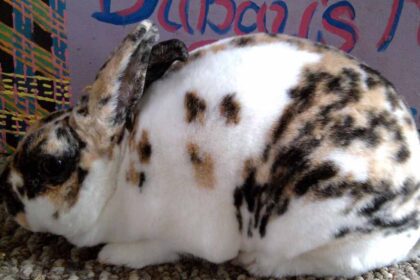So, you’ve decided to bring a little ball of mischief and joy into your life—a ferret! These adorable, playful creatures can be a fantastic addition to your family, but they do require specific care to ensure they’re happy and healthy. Let’s dive into the essentials of ferret care, starting with their housing.
Housing
Ferrets are curious and energetic, needing a spacious and secure environment to explore. A multi-level cage with ramps and tunnels is ideal, providing ample space for climbing and burrowing. Make sure the bars are close enough together to prevent escapes—these little guys are known for their Houdini-like skills!
Lining the cage with soft bedding, like fleece blankets, ensures your ferret has a cosy place to rest. And don’t forget to include a few hammocks; ferrets love lounging in them.
Diet
When it comes to feeding your ferret, think protein, protein, protein. Ferrets are carnivores, meaning they primarily eat meat and their diet is all around meat. High-quality ferret food with a high protein and fat content is crucial. Supplement their diet with occasional treats like cooked eggs or small pieces of chicken, but steer clear of fruits and vegetables—they can upset their digestive system.
Freshwater should always be available, and it’s best to use a water bottle rather than a bowl to keep things clean.
Vet Care
Regular veterinary care is a must for ferrets. Find a vet experienced with exotic pets, as ferrets have unique health needs. Annual check-ups are essential to catch any potential issues early. Ferrets are prone to several health problems, so a proactive approach is crucial.
Common Health Problems
Ferrets can face a variety of health issues. Here’s a rundown of the most common ones:
- Adrenal Gland Disease: This is a prevalent issue in ferrets, causing hair loss, itching, and changes in behavior. Treatment often involves surgery or hormone therapy.
- Digestive Disorders and Obstructions: Ferrets love to chew on things they shouldn’t, leading to potential blockages in their digestive system. Keep an eye out for vomiting, loss of appetite, or lethargy.
- Dental Issues: Regular dental check-ups are vital as ferrets can suffer from tartar build-up and gum disease. Providing chew toys can help keep their teeth clean.
- Lymphoma: This type of cancer is common in ferrets. Symptoms can be subtle, like weight loss and lethargy, so regular vet visits are crucial for early detection.
- Heart Disease: Ferrets can develop heart conditions, often marked by symptoms such as coughing, difficulty breathing, or lethargy. Medications can manage the condition, but early diagnosis is key.
Vaccination Schedule
Vaccinations are a cornerstone of preventive care for your ferret. They should receive their first distemper shot at 8 weeks, with boosters at 11 and 14 weeks. Annual boosters are necessary to maintain immunity. Rabies vaccinations are also important, typically given at 12 weeks with annual renewals. Always consult with your vet to ensure your ferret is on the right vaccination schedule.
Dental Care
Just like us, ferrets need regular dental care. Brushing their teeth might sound like a daunting task, but starting early can make it a routine. Use a pet-safe toothpaste and a small toothbrush designed for ferrets. If brushing isn’t possible, dental treats can help maintain oral health. Regular vet check-ups will also include dental assessments.
Claw Trimming
Ferrets’ nails grow quickly and can become a hazard if not trimmed regularly. Use a small pet nail clipper and be cautious not to cut too close to the quick (the pink part of the nail). If you’re unsure, your vet can show you the ropes. Regular trims every few weeks will keep their nails manageable.
Ear Cleaning
Ferrets can accumulate a lot of wax in their ears, which can lead to infections. Once a month, clean their ears with a vet-recommended solution. Gently apply the solution, massage the base of the ear, and then wipe away the excess with a cotton ball. Avoid using cotton swabs, as they can damage the ear canal.
Managing Hairballs
Ferrets groom themselves frequently, which can lead to hairballs. Unlike cats, ferrets can’t cough them up, leading to potential blockages. Regularly brushing your ferret, especially during shedding seasons, helps reduce the risk. There are also hairball remedies available that you can give your ferret to help them pass the hair more easily.
Caring for a ferret can be a delightful adventure, filled with playful antics and affectionate moments. By providing the right housing, diet, and healthcare, you’ll ensure your ferret lives a long, happy, and healthy life. Remember, the key to a thriving ferret is your active involvement and love. So, embrace the joy and fun these little creatures bring, and they’ll reward you with endless entertainment and companionship.














Comments are closed.